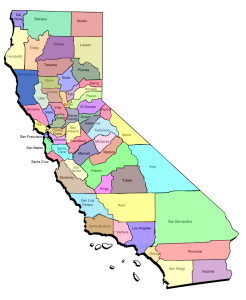 As a parent, you are always looking out for ways to protect your children from harm. One of the biggest threats in large states like California is the presence of a high number of sex offenders. If you live in (or near) a relatively large city, there is a high chance that there are a few registered sex offenders living in your neighborhood. As a parent, it is your utmost responsibility to know who these sexual predators are and where they live. Use the quick form on the right hand side to see a live map of your neighborhood showing you the exact location of all registered offeders. (Free service provided by our partner SeekVerify)
As a parent, you are always looking out for ways to protect your children from harm. One of the biggest threats in large states like California is the presence of a high number of sex offenders. If you live in (or near) a relatively large city, there is a high chance that there are a few registered sex offenders living in your neighborhood. As a parent, it is your utmost responsibility to know who these sexual predators are and where they live. Use the quick form on the right hand side to see a live map of your neighborhood showing you the exact location of all registered offeders. (Free service provided by our partner SeekVerify)
Each state has its own laws regarding sex offenders and how they must register once they are back out in public. Fortunately for parents, California uses Megan’s Law to list sex offenders online. Parents are allowed to look up their neighborhoods to learn about potential threats in their area.
Registering on the Megan’s Law Website
Registered sex offenders are disclosed on the California Megan’s Law website. Information about the offender available to the public includes his or her home address and guilty charges. Some offenders are excluded from the website, including felony sexual battery and misdemeanor molestation of children, if no other offenses were committed. Offender’s charged with felony child pornography are also excluded if the victim was at least 16 years old. In addition, the law may exclude some offenders who complete probation for an offense against a family member that did not involve oral or genital penetration. In addition, juveniles may be excluded.
Local law enforcement agencies are not required to inform the public about the presence of registered sex offenders; however, some agencies will decide to speak to neighbors if they believe an offender poses a significant risk to the public.
When offenders are released from custody or probation, he or she has five days to register in person with the local police department. This is also the case with any move. Transient offenders must register as such every 30 days. Anybody living at, enrolled in or employed by a higher education institution is also required to register with the on-campus police department. Sexually violent offenders must update their address every 90 days as well.
Sexual Assault
California has several laws regarding sexual battery that dictate the level of offense as well as the prescribed punishment. Sexual assault involves intimate touching for sexual gratification, arousal or abuse. This assault may be classified as a misdemeanor or felony, depending on the victim. It may be a felony if the victim was fraudulently led to believe the touching was professional, was unlawfully restrained, was incapacitated or disabled or was forced to touch intimate body parts. The courts may rule this assault a misdemeanor if the offense involved touching another person on the breasts or buttocks without consent.
Statute of Limitations
Unfortunately, there are several laws surrounding the statute of limitations for cases of sexual assault, rape and molestation. There is currently no statute of limitations for filing charges of aggravated rape, which involves a weapon, more than one offender or serious injuries for the victim. Most other sexual assaults have a limit of six years unless DNA can prove the identity of a rapist. In cases of child molestation, a 10 year limit exists. Debates regarding statutes of limitation continue to evolve.
The state of California takes instances of sexual assault seriously in an effort to curb incidences of the crime. While the judicial system is nowhere near perfect, it does make an effort to put offenders either behind bars or in a position of low-risk to the community.






